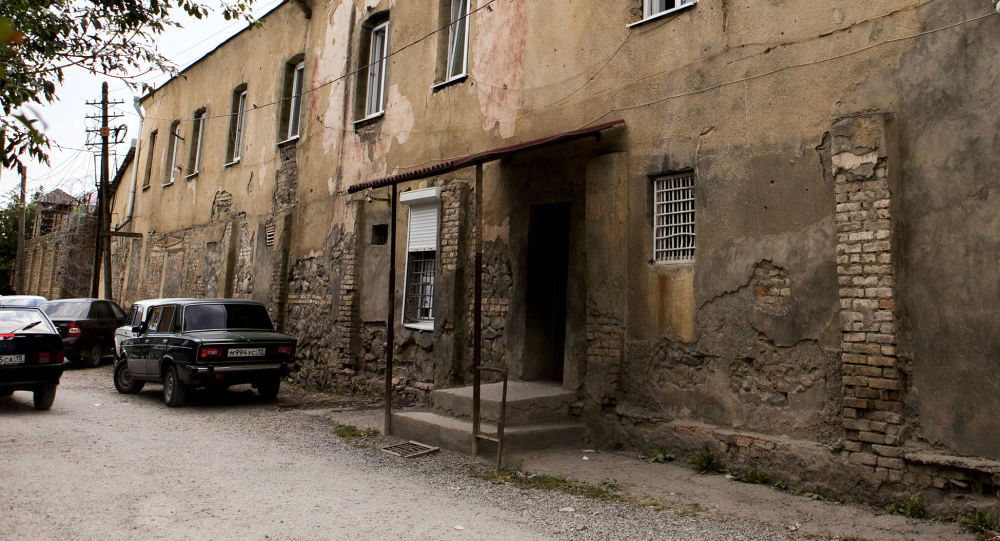Around 20 prisoners cut their wrists in South Ossetian penal colony
Following yet another raid by Ministry of Justice officials and police in a prison in Tskhinvali on June 5, about 20 prisoners opened their veins in protest, as reported by their relatives. All of them received medical care and none of them died.
The prisoners claim that they were treated with aggression and that physical force was used against them, sources in South Ossetia say.
• South Ossetia’s prisoner hunger strike debacle – who, what, why
• Trial in South Ossetia: Minister of Justice v. journalist
Relatives of the victims gathered at the parliament building and demanded a meeting with the authorities. They met with the speaker of parliament and the leader of the ruling United Ossetia Party Alan Tadtaev, and then with President Anatoly Bibilov.
Bibilov said that “the leadership of the republic will not take their cues from criminals.” He says that recently, 14 telephones were seized in penal facilities, and that the law enforcement officials were acting well within the law.

What happened in the prison – stories from both relatives and the authorities
Relatives of the prisoners accuse the Ministry of Justice and the prison staff of the unlawful use of force and of driving the prisoners to suicide.
However, President Bibilov, referring to official sources, told a different version of the events.
“Two phones were seized from the prisoner Kulumbegov’s cell. After that, the security guard was hit in the head. But during the incident no one touched the prisoners, and Kulumbegov was placed in solitary confinement. A criminal case will be instituted against him in connection with this incident, in addition to the crime for which he is currently serving time.
“After using physical force—but not beating them—they were forced to disperse. One of them, using obscene language, urged everyone to inflict wounds on themselves, which they did. None of them hit a vein, only the capillaries were damaged, as they were not going to inflict fatal wounds on themselves,” said Bibilov.
He says that over the last year, living conditions have only improved in the prison: the recreation yard was refurbished and they were given three meals a day.
There is also a third side to the story—that of the Ministry of Justice and the Prosecutor General of South Ossetia.
Their version of events suggests that the four prisoners of the Tskhinvali penal colony were attempting suicide by opening their veins:
“The day before the incident, all regularly-scheduled events were held and prohibited items were seized. One of the prisoners resisted, and the police had to be called. In the morning, the convicts were absent during the morning routine: they did not participate in the wakeup call, morning inspection, or breakfast at the regularly-scheduled times. In response to the lawful actions of the employees, four prisoners had injured themselves by cutting their forearms, but their wounds were not life-threatening.”
Each version of the story has a different count for the total number of prisoners injured.
Mairbek Kokoev, director of a multidisciplinary medical center, reported that the ER received 6 people from the correctional colony on Friday morning, and that these patients received the necessary medical assistance.
This is not the first time an incident like this has happened. In the fall of 2019, a riot occurred in the Tskhinvali prison, and prisoners spoke out about the terrible conditions and inhumane treatment. Several MPs demanded the immediate dismissal of Minister of Justice Zalina Lalieva and Minister of the Interior Igor Naniev.
However, the president of South Ossetia refused to comply with these demands.




















